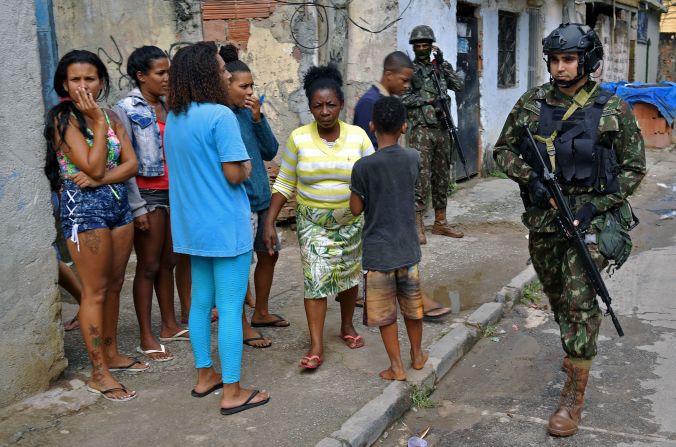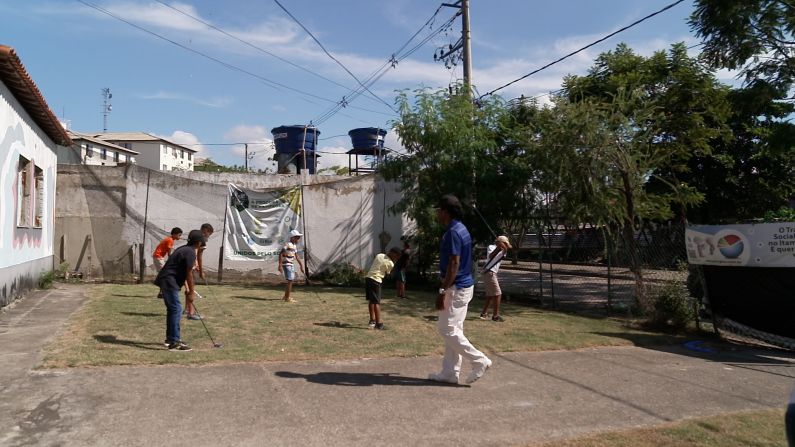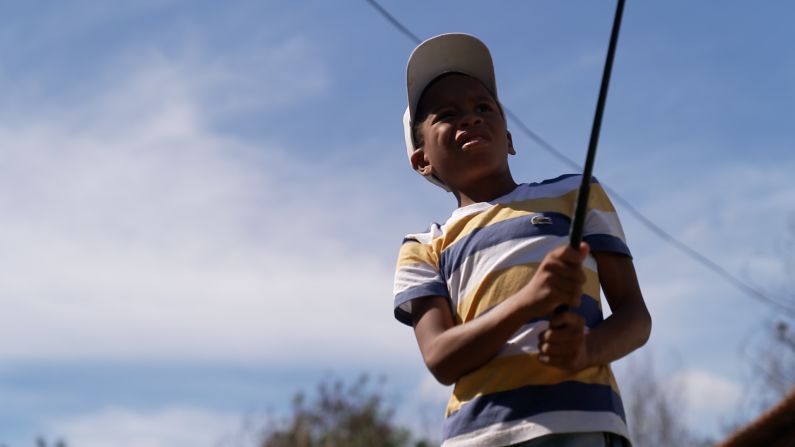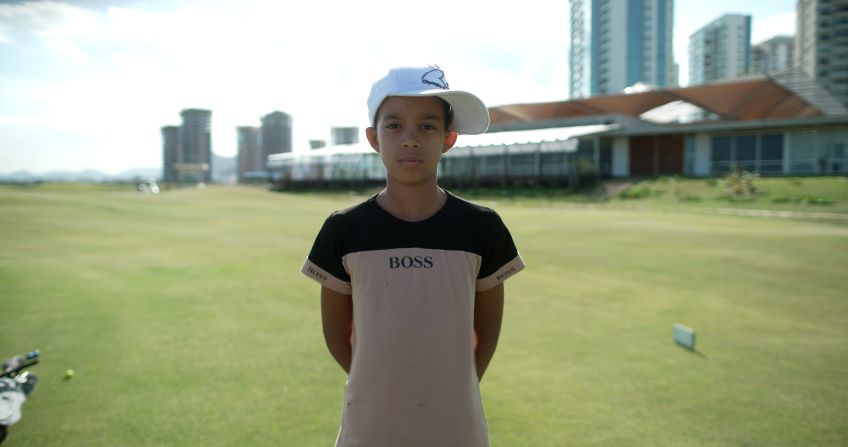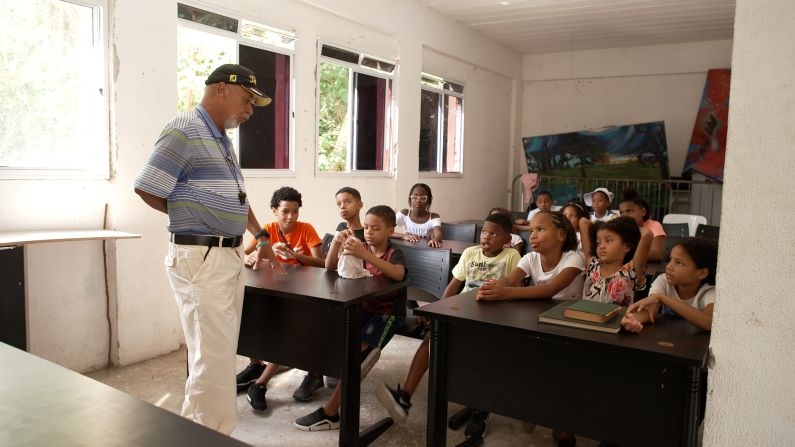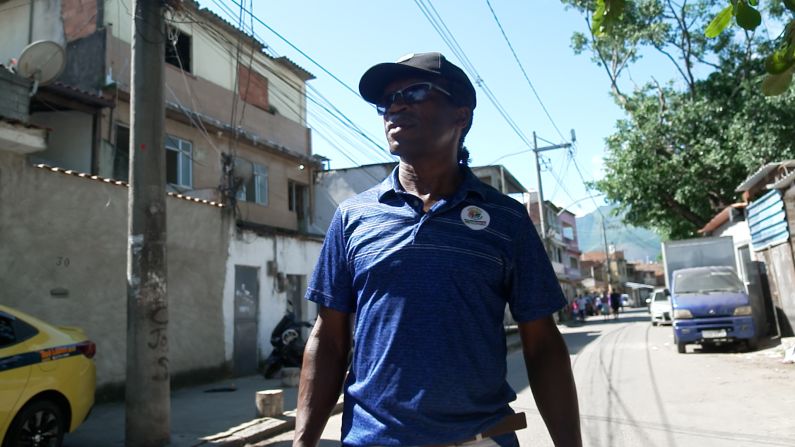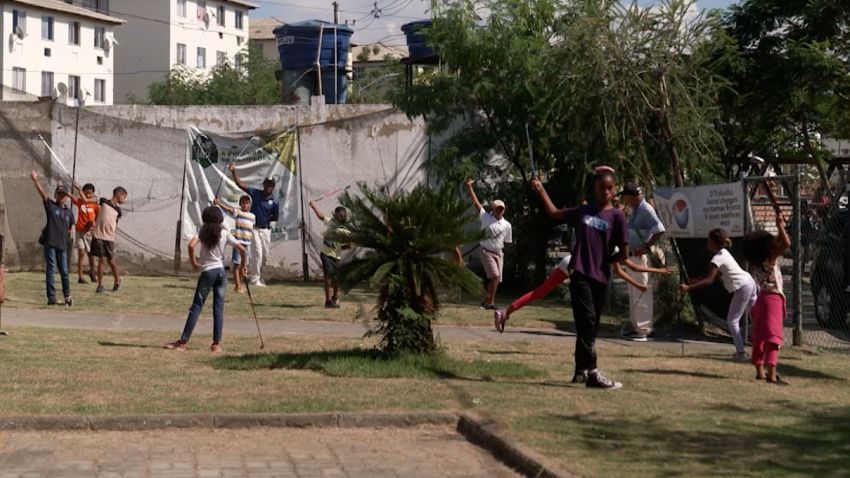Rio de Janeiro’s notorious Cidade de Deus favela was immortalized in the 2002 film bearing its name in English, “City of God.” The movie was critically acclaimed for its depiction of gang violence in the favela, and today, life there is still incredibly dangerous as the police and gangs wrestle for control.
According to Brazil’s Public Security Institute (ISP), there were 768 violent deaths in the state of Rio De Janeiro in January and February of this year alone, up 6% from the same period in 2022.
Against this violent backdrop, Marcelo Modesto, a City of God native, is using golf to try to transform the lives of the children who live there.
Entering the favela, it’s impossible not to be struck by the harsh realities faced by its residents. Drug dealing, checkpoints and armed gang members on motorbikes provide a grim backdrop to people’s everyday lives.
However, amidst this bleak environment, Modesto’s golf academy stands as a sanctuary, offering hope and protection to the children within its confines.
“People initially think that Cidade de Deus only has criminals, illiterate people,” Modesto tells CNN from the small plot that serves as the base for the program.
“The work that we develop … is to prove to society, to Rio de Janeiro and to the world, that the City of God also has people who make a difference.”
On a small patch of grass, Modesto devotes his time and expertise to teaching golf to 20 to 30 children from the favela at a time. Without public or private funding, Modesto started the lessons in 2019 with a passion for golf and the aim of getting the children in his community off the streets. Beyond learning the techniques of the game, every swing of the club, every lesson on discipline and respect carries immense significance.
Modesto is striving to create opportunities for these children far beyond golf. “I’m sure that in the future, maybe five, 10 years from now, we will really have champions,” he says. “Regardless of whether they are great golfers, they can be great doctors, great lawyers, great coaches, great businessmen.”
Transformative power
Modesto’s passion for golf began during his early years as a caddie, where he not only learned the intricacies of the game but also invaluable life lessons. “Golf, after my mother, was what taught me social etiquette initially. I learned how to dress, how to speak, how to behave, how to sit at the table and how to make money,” he explains.
Recognizing the transformative power of the game, he set out to share these experiences. He now receives support from Rio’s Olympic Course, built for the 2016 Olympic Games, where he is able to take his students. “We train with them twice a week at my mini center … and every 15-days we take these children to the Olympic Course,” he says.
“If we can take these children to a course, they will certainly have more awareness of the competition, of the space.”
Carlos Favoreto is the president of the Olympic Course and says he feels that social inclusion is a big part of the Olympic legacy in Rio. “Social projects are the biggie for me,” he says. “We live in a country where the financial divide is enormous, you’re either very poor or very rich.
“Giving the very poor the chance to visit a place like this and see they could also play golf is important … who knows? Maybe we could have a golf Pele … from one of our poor communities.”
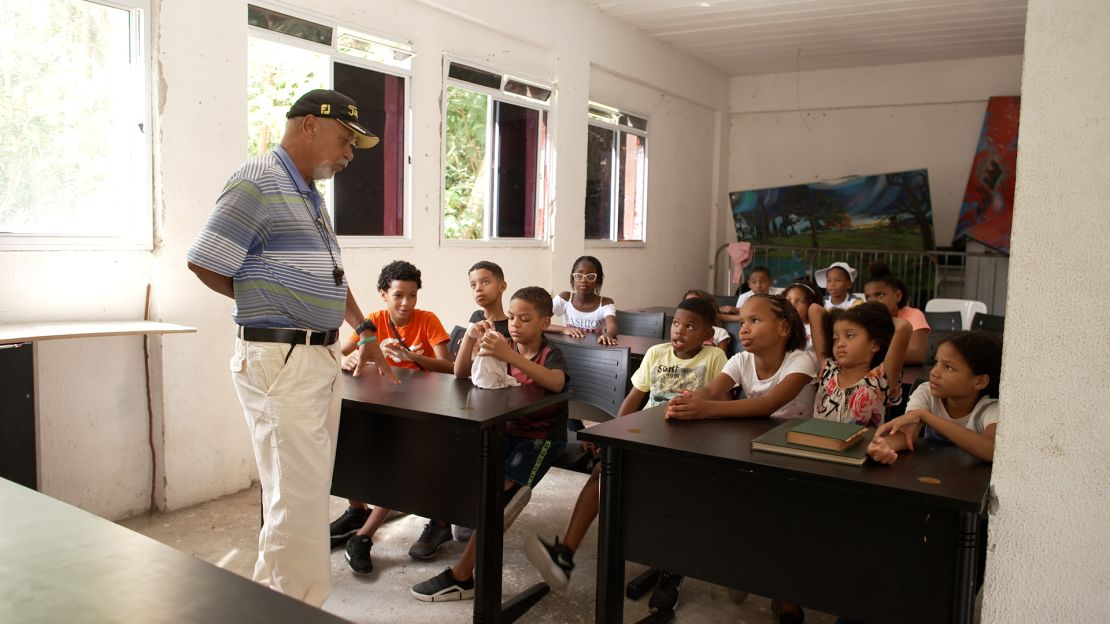
The golf academy is welcomed by worried parents, as it keeps children off the streets where there’s a risk of being scouted by drug gangs seeking messengers and couriers, according to Modesto.
“The outside people respect this space here,” says Tiago Albuquerque, a retired English teacher who volunteers his time to provide English lessons to Modesto’s pupils.
“They have kids who are their relatives,” Albuquerque says, referring to the gang members in the favela. “They don’t want them following the same bad track they did, they want these kids away from evil.”
A report from UNICEF estimated that in 2019 nearly 1.1 million school-aged children and teenagers in Brazil were out of school, with 90.1% of those children coming from households earning below the minimum wage.
“There are fathers here, there are mothers who don’t have [their own] room … there are fathers, there are mothers here who go to the market to try and get produce that has expired so they can provide food to eat,” Modesto says of the challenges families face in the favela.
“For the children, their parents have a low education level, sometimes the father is a drug addict or alcoholic. In addition to us having to teach golf, we have to be a psychologist, a social worker,” Modesto explains.
“It’s changed my life”
For the children enrolled there, the golf academy can be transformative, providing opportunities on and off the course.
“Marcelo told me to put my name down, my mum signed, and everything changed in my life,” says 11-year-old David Loreno Marcelo Moreno.
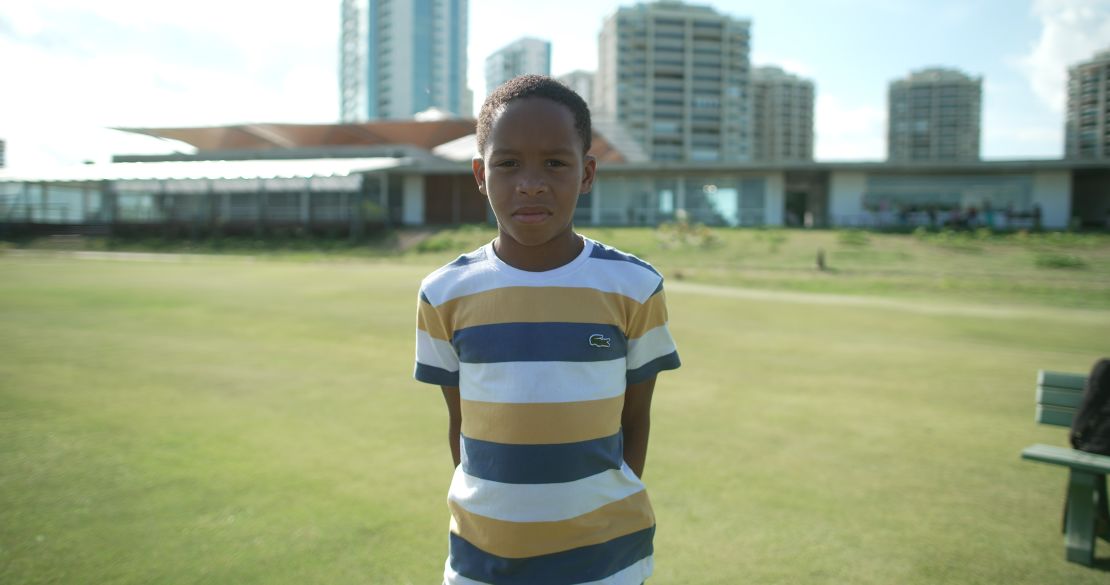
“My teacher let me come here, and I’m improving,” says 11-year-old Alexandre Gomes Goncalves. “It’s changed my life a lot. I had nothing to do, now I do.”
Modesto has no financial backing, but he has lofty ambitions for his project moving forward. He plans to set up more golf centers in the city of Rio, and to create a community golf championship for children from across the entire state, which he hopes could lead to a sports exchange program with the US and Europe.
Despite the challenging circumstances, Modesto remains resolute in his mission. “Gunshots don’t scare me anymore. It’s normal for one to die today or to die tomorrow,” he says. “So our reality is very sad. What do I try to do? I only try to show these children, with the work I’m developing here, that they can be someone different, that they can be part of a society while contributing to a better world.”

